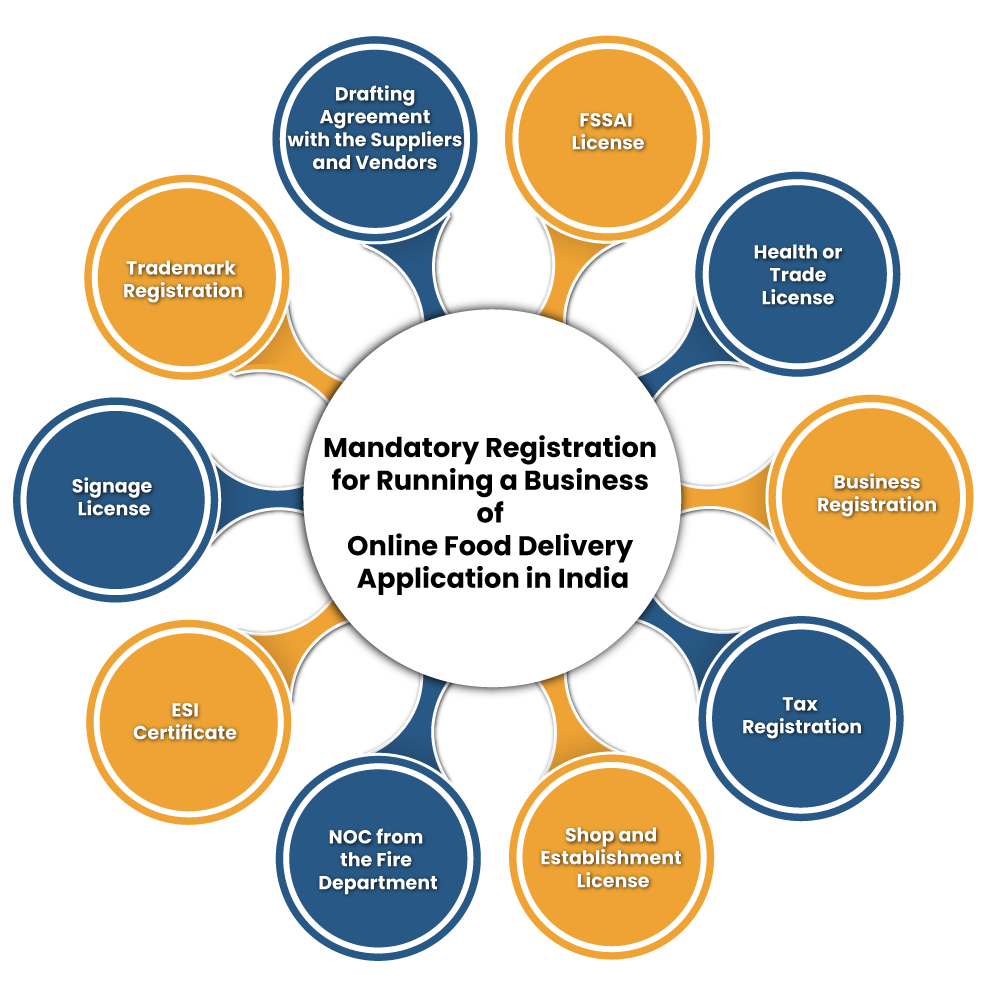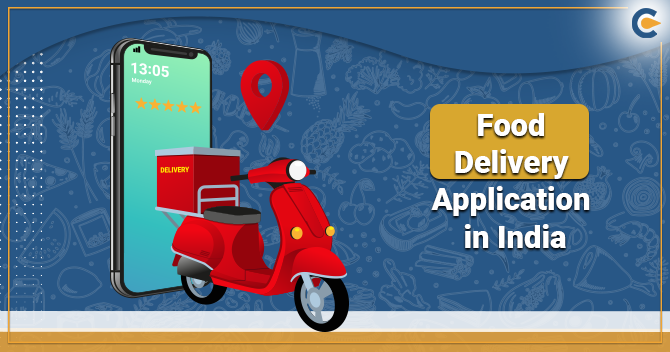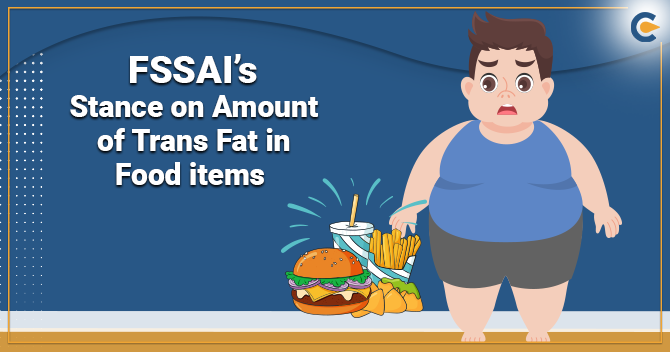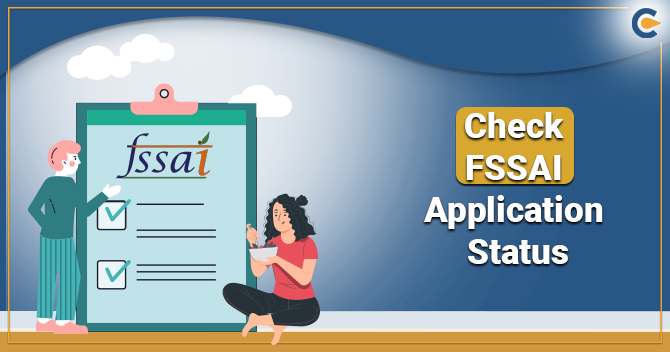Food Delivery Application is gaining popularity in the Indian market due to its widespread reach and unparallel convenience. The popularity of these platforms is increasing every passing day, which allows more start-ups to step into this business domain. As the name suggests, Food delivery application works on an online channel that allows customers to place an order in fractions of seconds through an intuitive interface. Online dominance allows online food aggregators to gain access to the wide bandwidth of the masses and earn more profit.
If you are willing to be part of this business model, then you would be required to avail the long list of government-based licenses and registrations in the first place.
Read our article:How can an Online Food Ordering System make your brand create milestones?
Mandatory Registration for Running a Business of Online Food Delivery Application in India
In view of the existing legal framework, we have compiled a list of registrations and license that one has to avail for setting up a business of online delivery application in India.


Drafting Agreement with the Suppliers and Vendors
Setting up a legal agreement with the vendors and suppliers should be your foremost priority while establishing a Food Delivery Application. While drafting a legal agreement, make sure to put any confusion and ambiguity out of the equation by enclosing relevant terms and conditions. The agreement must be drafted legally and should enclose the signature of the concerned parties.
FSSAI License
FSSAI license is mandatory for all food business operators, including running a Food Delivery Application in India. FSSAI Registration is primarily classified under three categories – Basic, State, and Central License. One can apply for these licenses based on the scope of operation and income.
FSSAI license holders are legally bound to avert malpractices regarding the food business. They are liable to ensure that the food proposed to be served as a customer is free from adulteration and other harmful substances. As per the government rules, the FSSAI license remains active for the duration of one year.
Health or Trade License
Most states mandate the establishment to obtain a trade license from the Municipal Corporation if they have an in-house kitchen facility to support their online business. Authority normally grants this license within the 30 days duration from the date of application. Trade license comes with a validity period of one year.
Business Registration
A registered business can avail of proven benefits such as perpetual succession, tax exemption, and fewer liabilities. Based on the scale of operation, management structure, and income, you can opt to register under different business models such as Sole Proprietorship, LLP, or Partnership Firm, or Company registration.
Tax Registration
Every business entity reaping income through non-exempted products and services is liable to address the tax liabilities as per the GST and Income Tax Act.
For online transactions, one has to avail of a GST registration certificate from the concerned authority. The applicant can also obtain MSME registration to get access to government-mandated benefits.
Shop and Establishment License
Shop Act License is a state-specific license, and it is compulsory for all businesses, including online food aggregators. Department of Labor issues this license within the duration of 30 days from the date of the submission of the application.
Employee Provident Fund Organization Registration
EPF registration is generally applicable to those establishments having manpower not less than 20. The employers are required to avail of this registration within 30 days of attaining the said strength.
Once obtained, the registration will continue to serve its purpose even if the employee numbers fall below the required limit. The applicant needs to visit the EPFP portal to submit an online application for the EPF registration.
ESI Certificate
ESI is an abbreviated term of Employee State Insurance controlled by the Employee State Insurance Corporation, an apex body set up by the law under the Ministry of Labour & Employment, GOI.
Under the said scheme, the company owner requires contributing an amount of 4 percent of the employee’s total monthly salary; meanwhile, the employee needs to contribute about 1 % of this/her salary every month.
NOC from the Fire Department
The online food aggregators running Food Delivery Application having an in-house kitchen facility will be required to avail NOC from the fire department of the respective states.
Environmental Clearance Certificate
Environmental clearance is a procedure of availing government[1] clearance for certain projects that are affecting the environment in one way or another. Government has already drafted a list of project that comes under the environmental clearance regime. These are as follows:
- Thermal power plants
- Mining
- Infrastructure
The EIA (Environmental Impact Assessment)notification classified the project into two primary categories: Categories A % B. Projects coming under Category A get approval from the Ministry of Environment, Climate change, and forest, & Category B will get their approval from the State Environmental Impact Assessment Authority.
Some optional yet important licenses for an online food aggregator:
Trademark Registration
Trademark registration adheres to a lot of importance for businesses that care about protecting their brand identity. Once your businesses attain the good repo in the target market, it will become more susceptible to brand violation. And this is something you should consider very seriously if you are dreaming of reaping long term benefits from your business.
Signage License
Signage License renders the legal permit to the applicant to promote their offerings or brand through conventional marketing channels such as signs and boards. One can reach out to local civil authorities to avail of such a license.
Conclusion
There is no denying that launching a Food Delivery Application attracts plenty of legal obligations. There is a long list of government licenses and registrations that one has to avail of before stepping into such a business model.
Apparently, it would be daunting for anyone to avail of these registrations in one-go owing to the intricacy of the process. In such cases, it is advisable to contact to hire a professional like Corpbiz that can render end-to-end support on the registration process.
Read our article:Key Insights on Setting up an Online Food Delivery Marketplace in India











